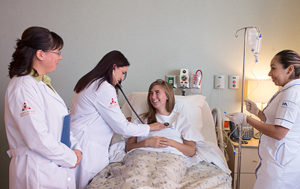
Effective cancer treatment sometimes involves dealing with side effects and secondary symptoms. Here are some things you need to know about the possible effects of cancer and its treatment on cognitive abilities.
What Is Cognition?
Simply put, cognition is “the mental process of learning and understanding.” Cognitive thinking is what allows you to focus, process new information, solve problems, perceive spatial relationships and communicate via speaking and writing.
Cognitive Problems Related to Cancer
Problems involving learning and memory are common signs of cognitive impairment due to cancer. Specific problems can include:
– Inability to complete tasks
– Failure to recognize familiar objects
– Loss of focus and concentration
– Difficulty with money management, such as paying bills
– Lack of motivation
– Disorganized behavior and/or thinking
Other Factors Contributing to Cognitive Problems
States of mental and physical well-being are deeply intertwined. Cancer patients and survivors may find that the following issues also impact cognitive abilities:
– Age
– Overall weakness or frailty
– Drug and alcohol use
– Chemotherapy and other cancer treatment
– Other diseases or illnesses
– Being postmenopausal
Restoring Cognitive Abilities
Researchers are studying the use of certain drugs in treating cognitive problems, but a pharmaceutical solution is still in the future. Many patients have found these natural methods to be helpful:
– Movement therapy, such as tai chi or yoga, that emphasizes the mind-body connection
– Learning new ways to absorb information
– Using calendars, tech devices or other tools to stay organized
– Activities such as gardening or caring for pets that establish focus
Integrative Non-Toxic Cancer Treatment at Issels®
Our personalized cancer treatment methods avoid the common side effects that can affect your overall wellness. Contact us for more information.



 Doctors have long cautioned against poor lifestyle choices, such as smoking, that increase the risk of cancer. In a study that may hold implications related to
Doctors have long cautioned against poor lifestyle choices, such as smoking, that increase the risk of cancer. In a study that may hold implications related to 
